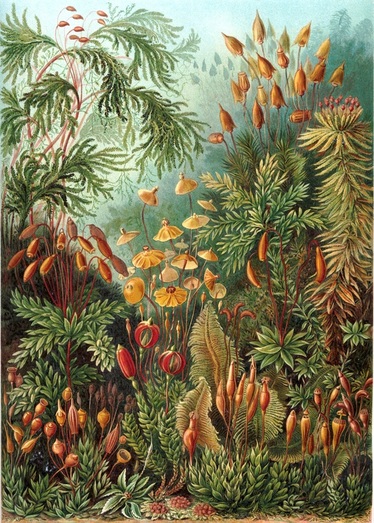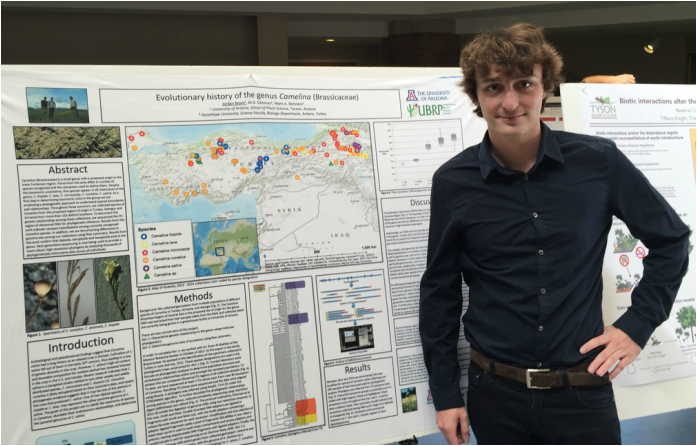|
Today was the 5th annual SLEEC retreat at the Saint Louis Zoo. Presenters from Washington University in St. Louis, Missouri Botanical Gardens, Saint Louis University, University of Missouri-St. Louis, and Southern Illinois University Edwardsville gave talks on a variety of fascinating topics. Talks ranged from evolution in Anolis lizards to the ecology of religious beliefs, even lessons learned from global whaling negotiations. For the event I presented a poster detailing my undergraduate work at the University of Arizona, a great opportunity to introduce my work to new colleagues.
If you're in the Saint Louis area and interested in evolution, check out the SLEEC website.
0 Comments
 Kunstformen der Natur (1904) Kunstformen der Natur (1904) Ernst Haeckel (1834-1919) proposed the famous "Ontogeny recapitulates phylogeny" hypothesis which states that the history and evolution of an organism (phylogeny) is parallel to its development at the embryo stage (ontogeny). Frustrated by the fact that few scholars of his era understood even the most basic aspects of ontology, Haeckel set out to convince the scientific community that his theory could explain the evolution of man. This interesting theory has long been controversial and is now considered to be without merit. In light of the evidence for evolution at the time, it seems natural for such a theory to come about; long before the discovery of DNA there were few other places to look other than the morphological features of organisms to the naked eye. Haeckel studied embryogenesis as a way to gain insight to the history and relationship of organisms. His belief was that the development of embryos could tell a story about the position of an organism in relation to all others, as evidenced by the fact that early stages of human, dog and horse embryos are nearly identical. Furthermore, the gill-like fissures and folds of human embryos led Haeckel to postulate a fish-like ancestor of humans. While he was a proponent of Darwin's theory of a singular ancestor to all life, he favored a Lamarckian view of the evolution of individual species. There is much to be learned from Ernst Haeckel's work, and he's nonetheless a prominent scientist that contributed immensely to the study of invertebrates. And at the very least he put out some of the most amazing biological illustrations. |
AuthorJordan Brock Archives
November 2019
Categories |

 RSS Feed
RSS Feed